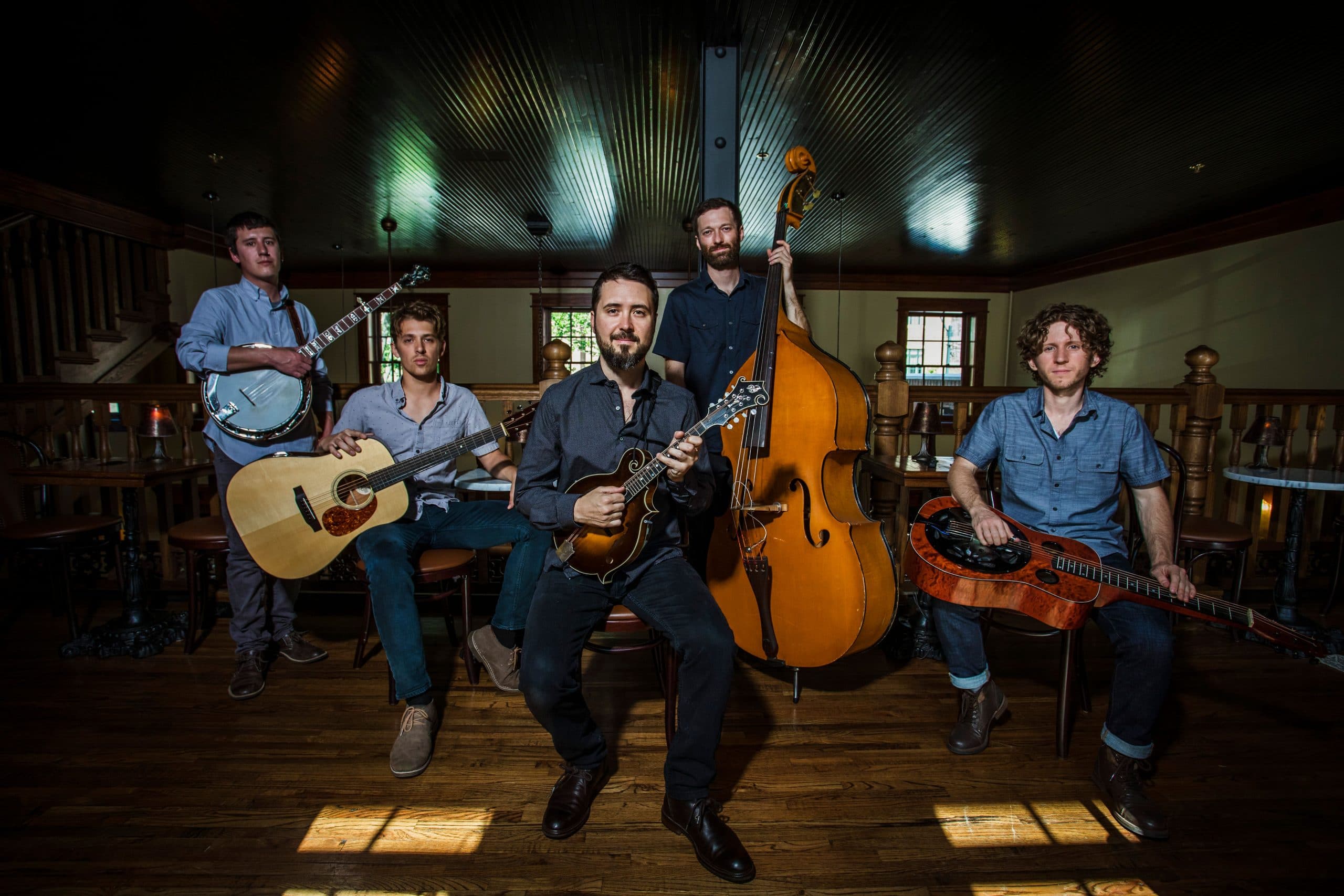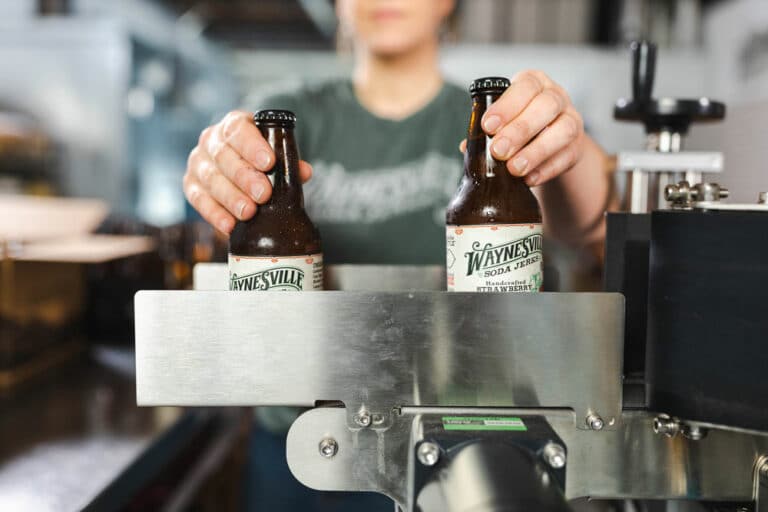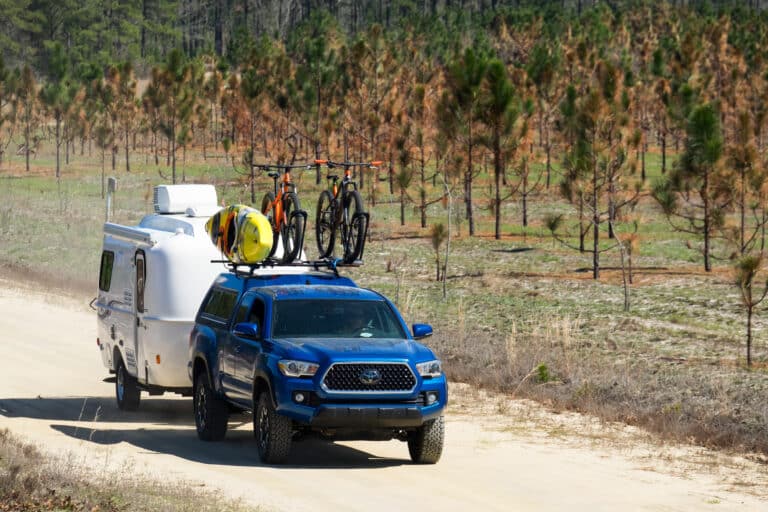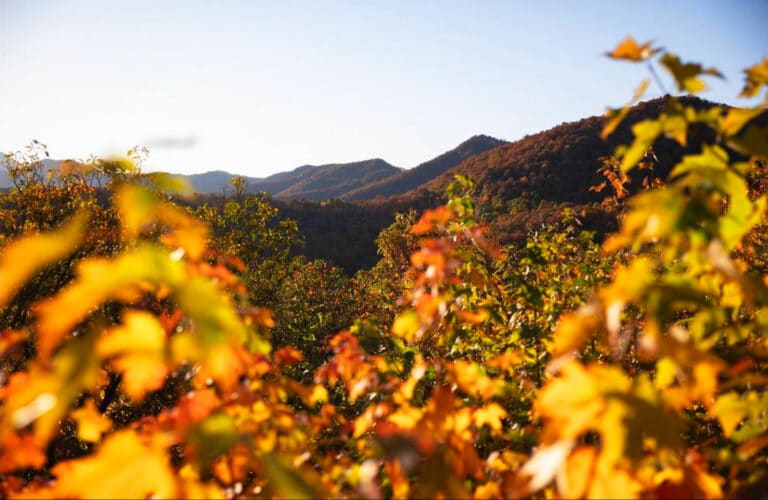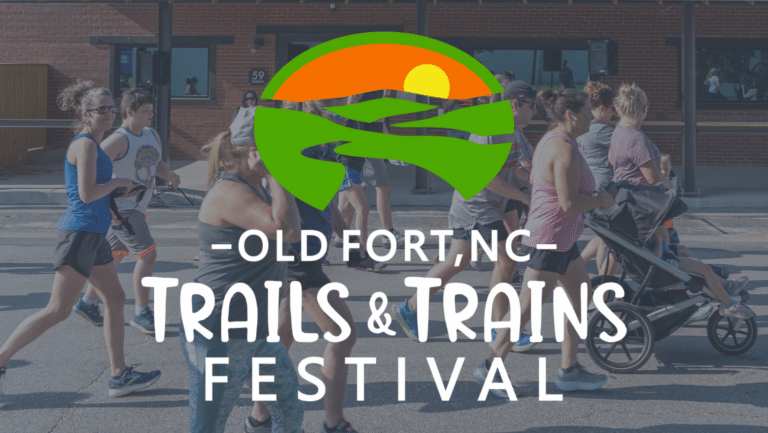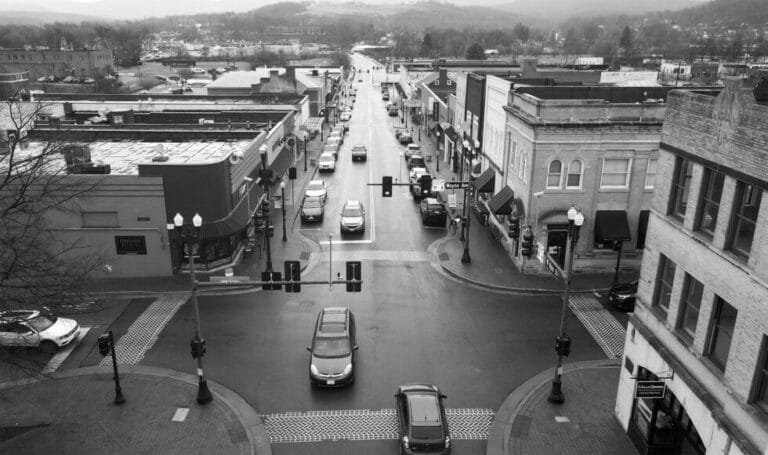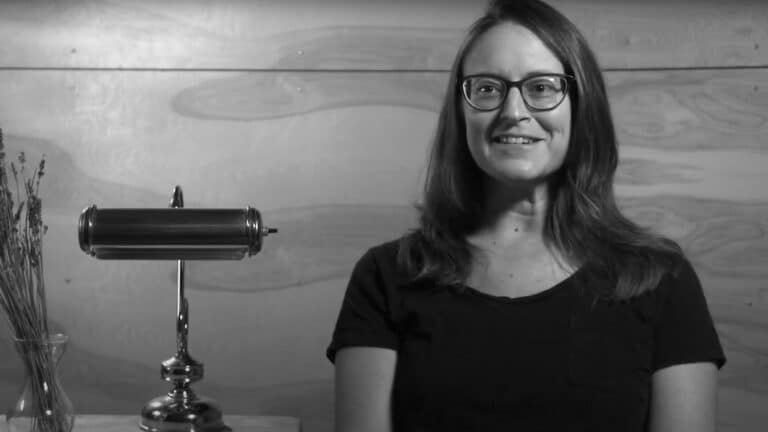Photo by Heather Hambor
For our May issue, artists across the Blue Ridge talked with BRO about what it means to make music in a year without in-person performances. For the next four weeks, we will be featuring each of those artists and taking a deeper dive into their creative process.
Fireside Collective was on stage finishing their soundcheck the afternoon of March 14, 2020 when North Carolina Governor Roy Cooper issued an executive order banning gatherings of more than 100 people. Jesse Iaquinto, a mandolinist and vocalist for the Asheville-based band, talked with BRO about the decision to cancel the release party for “Elements” and how the band navigated the shifting landscape.
BRO: Heading into 2020, what were your plans? What did your year end up looking like?
JI: The year was looking like our best year yet. We had festivals all the way out to Oregon, Arizona, RockyGrass in Colorado, up into New York State, and down in Florida. So our widest-ranging, busiest festival season yet. We were really excited about that. We had the album (“Elements”). On March 14, we were standing on stage. We had just sound checked at the Grey Eagle, and Governor Cooper issued the new restrictions. We had to make the tough decision to cancel the show the night of. I told everybody, “Don’t worry about it. A couple of weeks and we’ll be back at it by the end of April.” I stayed optimistic for a while. That changed after many months.
We adjusted really quickly. The official street release date [for the album] was March 20, 2020. So we shifted to a couple of livestream events. We actually raised a bunch of money, probably more than we would have made in the two shows.
Virtual shows took off in 2020. How did you approach staying connected with fans and audiences during this time?
For the first two months, we continued every Friday doing live streams, featuring different members, through the end of May. My daughter was born on June 12, so as I stepped away the whole band took a little break. We took the summer off. I was fortunate to be able to spend so much more time with my newborn than I was expecting. That’s a silver lining for me.
For the whole band, everyone really stepped back and had some time to focus on themselves, practice their instruments, and further their own personal well being. I was worried at first that this situation going on so long might take us further from one another, and eventually not be able to get back to it in the way we wanted to. But it actually somehow made us all closer and trust more in each other.
One of the ideas I had for the band for many years was to do a little series focused on the individuals and their own personal backgrounds. Being on the road all of the time, and then when you’re off the road you don’t really want to do as much, so we never got around to it. When the shutdown happened, it gave us a chance to explore those options that we’d been considering for a while. On top of that, just the uncertainty and lack of knowledge we had about coronavirus, we didn’t want to gather all together in spaces like we had before.
A lot of bands were doing live streams, and people maybe got a little fatigued from some of that. So we had to think about ways to keep people engaged, keep the series interesting. Our style of music depends a lot on the audience and the energy that comes from that. It’s different playing in front of screens, not having applause after songs, and that awkward five seconds after a song that you’re like uuuuh, what do I do?
After we took the summer off, we did the Bent Creek Sessions. We got outside and recorded some in nature, which I had always wanted to do as well. Of course, technology comes into play. I made the videos for the Bent Creek Sessions and I had to learn about video editing. I had to learn about these little inconsistencies like the bit rate where the video and audio record at slightly different rates so you have to alter the audio by like a millisecond so that it lines up perfectly. Otherwise, by the end of the video, the audio is not matching up with the mouths of the singers, and that looks weird. It was all a learning experience. Definitely some low points emotionally throughout the year. But where we stand today, I feel like everybody is feeling pretty positive and upbeat about how we fared so far.
From your perspective, as a musician and someone who tours a lot, what do you see the live music industry looking like going forward?
I know that people are going to be really excited to start playing. Everybody I’ve talked to has appreciated it more than ever before. Once you take something away, it reminds you of how important it was in the first place. So I think mixed with a renewed appreciation of live music, live shows are going to be better than ever.
Now having the live stream platform a little more within our grasp, that’s going to be something that we can lean on in the periods that we’re not on the road and highlight different aspects of the band. It’s like a new tool in our toolbox.
In a year when we’ve all been pretty socially isolated and unable to do a lot of our routine things, what were some of the things that helped you get through the past year?
I was lucky in some ways by having my first child born during the pandemic. There were a lot of days where I woke up sad. So when I’d come in to see the baby, she always has the biggest smile on her face. It just wipes away all of the hard realities that I’m processing.
Even before the pandemic, I’m a big fan of slowing down, processing, and really exploring our own emotions. I was a philosophy major in college. There are a lot of great books that I’ve wanted to read throughout the years. I was able to get back into it and understand some of my interests in a more profound way before. I’ve been able to use that to process my own emotions and stay optimistic. Philosophy is a powerful tool for dealing with the realities of human existence and the human condition.
On top of that, being able to play music at home, practice, and refine some of the skills that I maybe didn’t have time to on the road. In a lot of ways, I’ve become a more relaxed and calm person. When I approach singing now, I feel like I have more vocal control without actually practicing.
Have you all started scheduling live performances yet?
I felt like before the vaccine was readily available, we should do our part to not bring people together. I was worried that after having all this time off, suddenly it would open back up and we’d be full at it again. The challenge of adapting from doing very little, I was worried we’d be overwhelmed. But the way it’s looking, we’re kind of easing back in. We’re making sure they’re all responsibly organized. They’re all outdoors. We put a moratorium on playing indoors until the end of May—a personal thing to help us make the decisions. Then we’re going to gauge it.
The biggest challenge of this whole thing has been just not knowing where we’re going to be in three months. For us, we typically plan six months to a year in advance. I think a lot of bands are just sitting and waiting to see what happens. Some venues have been able to adapt to the outdoor situation, which has been awesome.
I think we’re looking at maybe September for more regular playing, but we’re still taking it one step at a time and being as careful as we can. This time, having a little more of an understanding of the way the virus spreads mixed with the vaccine and better guidelines, I think that by the fall we should be back at, maybe not the 100-percent full schedule, but working back towards it so that 2022 will be a more regular year.
Logistically, I feel really bad for booking agents and venues because it’s just a constantly moving target. The whole industry is adapting. I’ve seen some venues do a really good job and I’ve seen the opposite, some irresponsibility. We’re trying to sift through that and make sure that we’re aligning with people who have the right intentions.
As we are starting to see some hope coming out of this pandemic, is there something from the past year that you’ve learned or experienced that you want to carry forward with you?
I think that transparency and communication have been a major theme for us. We’ve had to be very honest with one another about the reality of the situation and where we are in life. It’s hard to be honest and share your feelings sometimes, but we’ve all worked hard on being as honest and open with one another throughout the past year.
Being on the road, a lot of times things get sidelined and you don’t say what you need to say for the sake of the minutia and the whole flow. You’re just burying it at that point. You’re not actually working through it.
On the personal side, the growth that I’ve been able to acquire from having a child and being able to put somebody first all the time is very humbling. It helped me as a band member because I want to treat the band like that as well and make sure that I’m making decisions that are best for the overall group and not just putting myself first.
We’re going to get through this. I believe that we’re going to come out better. I think a lot of things that we as a culture suppressed and glazed over, they came to the surface. I think it’s important to talk about things and work collectively to make society better for everybody. I hope that as a band we can do our part to contribute to that.
You can see Fireside Collective at a few upcoming outdoor festivals, including Smoked Country Jam Bluegrass Festival (Cross Fork, Pa., on June 17) and DelFest (Cumberland, Md., on September 23).
